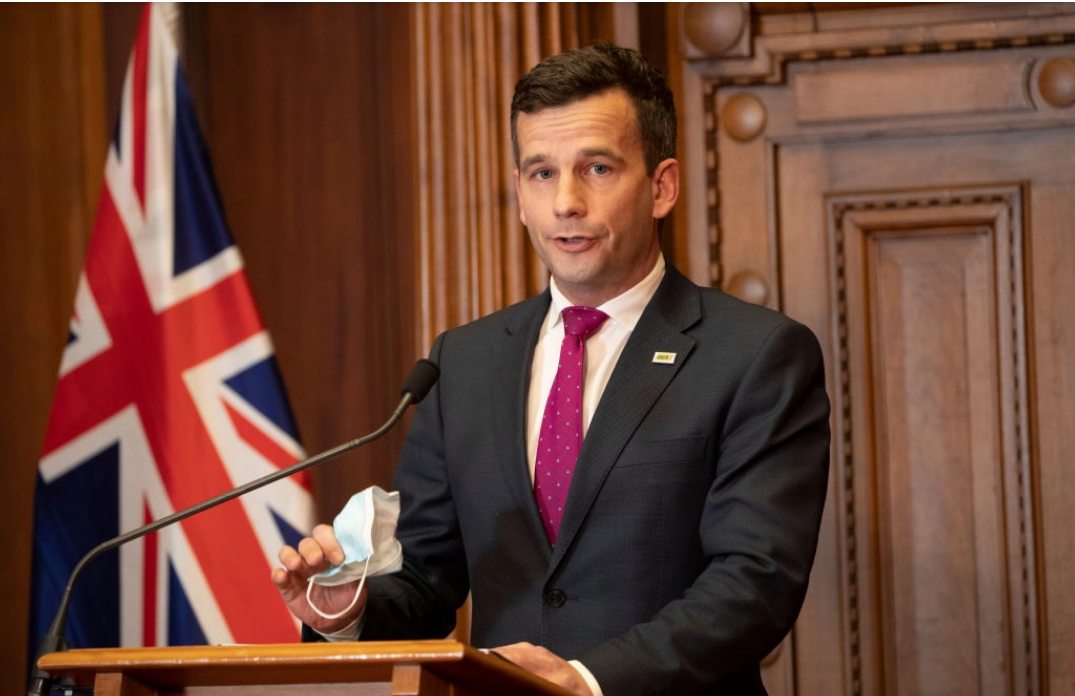Acceptance of responsibility is a key virtue that needs to be at the heart of individual and societal decision-making. However, it has been supplanted by victim theory which allows blame for all types of misfortune to be laid at someone else’s feet, or one’s background over which one has no agency and control.
Its impact is debilitating and corrosive to individual endeavour. It stifles motivation and a desire to improve one’s own lot in life.
This crooked thinking, which has so badly infected much of the Western world, has been exposed with a sensible and ever-so-refreshing approach by one of New Zealand’s smaller parties in that country’s national coalition government.
The ACT party leader, David Seymour, recently told his fellow New Zealanders that the malaise of the past 30 years—of government doing more and more for individuals—has allowed them to abrogate personal responsibility. He has called on New Zealanders to take control of their own lives.
The consequences of the ever-growing nanny state are there for all to see with faltering economic data and educational outcomes.
His rallying call to recognise that the individual is the only person who can make a real and lasting difference in their own lives is a display of leadership and wisdom, that once was ever so common and now ever so rare, albeit desperately needed in the public discourse.
Calling for Laws to Apply to All, Irrespective of Race
What is even more exhilarating for those who believe in reward for effort, hard work, personal responsibility, and similar virtues is that Mr. Seymour has called for these virtues to be applied across the board.
That’s correct. Irrespective of whatever identity someone wishes to embrace, it makes no difference to the application of these virtues.
So, if the fundamental principles which are the foundational cornerstones of a truly liberal democracy are to have any sway, they need to be applied without fear or favour, and definitely not because of one’s identity or grouping.
The first of these as pointed out by Mr. Seymour is hardly controversial—all citizens have the same political rights and duties.
This well-timed reminder needs to be understood by those who seek to divide society on the basis of race, which is such an ugly division festering unnecessary ill will between people.
Applying all these fundamental key points needed for a well-functioning democracy has genuine ramifications for the laws passed based on race and identity politics, rather than on need.
Failing to treat people equally is a recipe for resentment.
The people of Australia recently avoided that political bullet by overwhelmingly rejecting the Labor government’s Voice proposal which would’ve clothed a section of the Australian community (the Indigenous peoples) with special powers, for the simple reason they were of, or identified with, a particular race.
Mr. Seymour’s desire to bring all New Zealanders under the same laws is hardly a radical proposal. They campaigned during the election on the need to revisit the interpretations placed on the Treaty of Waitangi (NZ’s founding document) in legislation and by the courts.
Yet equality is anathema to those whose carved-out special rights may be removed. Taking away lollies usually causes upset.
Shoe Is on the Other Foot
Moving the pendulum to the sensible centre is a great national service and a policy for which New Zealanders voted.
Yet Mr. Seymour’s call has attracted the ugliness of those who label treating everyone equally as “white supremacist.” Go figure?
White supremacists argue for the exact opposite. They want people to be treated unequally on the basis of race. The extreme left wing in New Zealand wants exactly the same according to their rhetoric but just the other way round.
The shallowness of their argument needs to be exploded, steeped as it is in hypocrisy and double-speak. Treating everyone equally and basing help on an objective test of need, is somehow considered white supremacy?
The leadership of the New Zealand government in this area of public policy is to be applauded and adopted by governments around the world.
Special pleading and funding based on identity as opposed to a genuine specific need divides a community, as it has in New Zealand. It also takes away the important element of self-esteem and responsibility.
Stripping back special rights legislation will require resolve and determination. It appears this is what helped motivate the change of government in New Zealand as it did the massive rejection of The Voice across “the ditch” (the Tasman Sea) in Australia.
Australia’s national anthem (recently amended) tells of a people being “one and free.” Giving legislative life to that sentiment is vital for any genuinely democratic nation.
Equality before the law is non-negotiable in a fair, free, and just society.
The world needs to see more of the likes of Mr. Seymour.
First published here, February 8, 2024.
Eric Abetz was an Australian Liberal Party senator from 1994-2022. He has held several cabinet positions and served on parliamentary committees examining Electoral Matters, Native Title, Legal and Constitutional Affairs, as well as Foreign Affairs, Defence and Trade.



